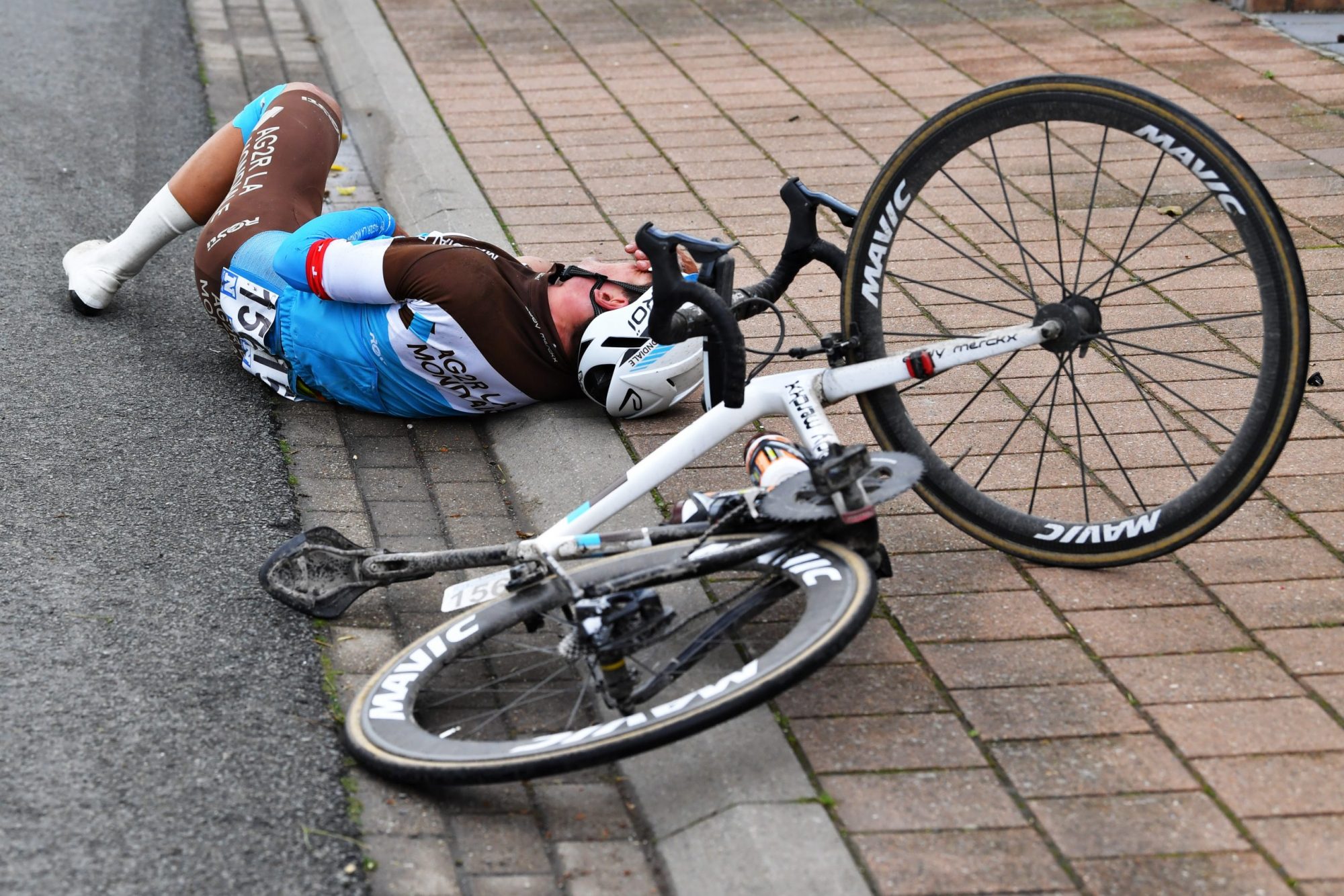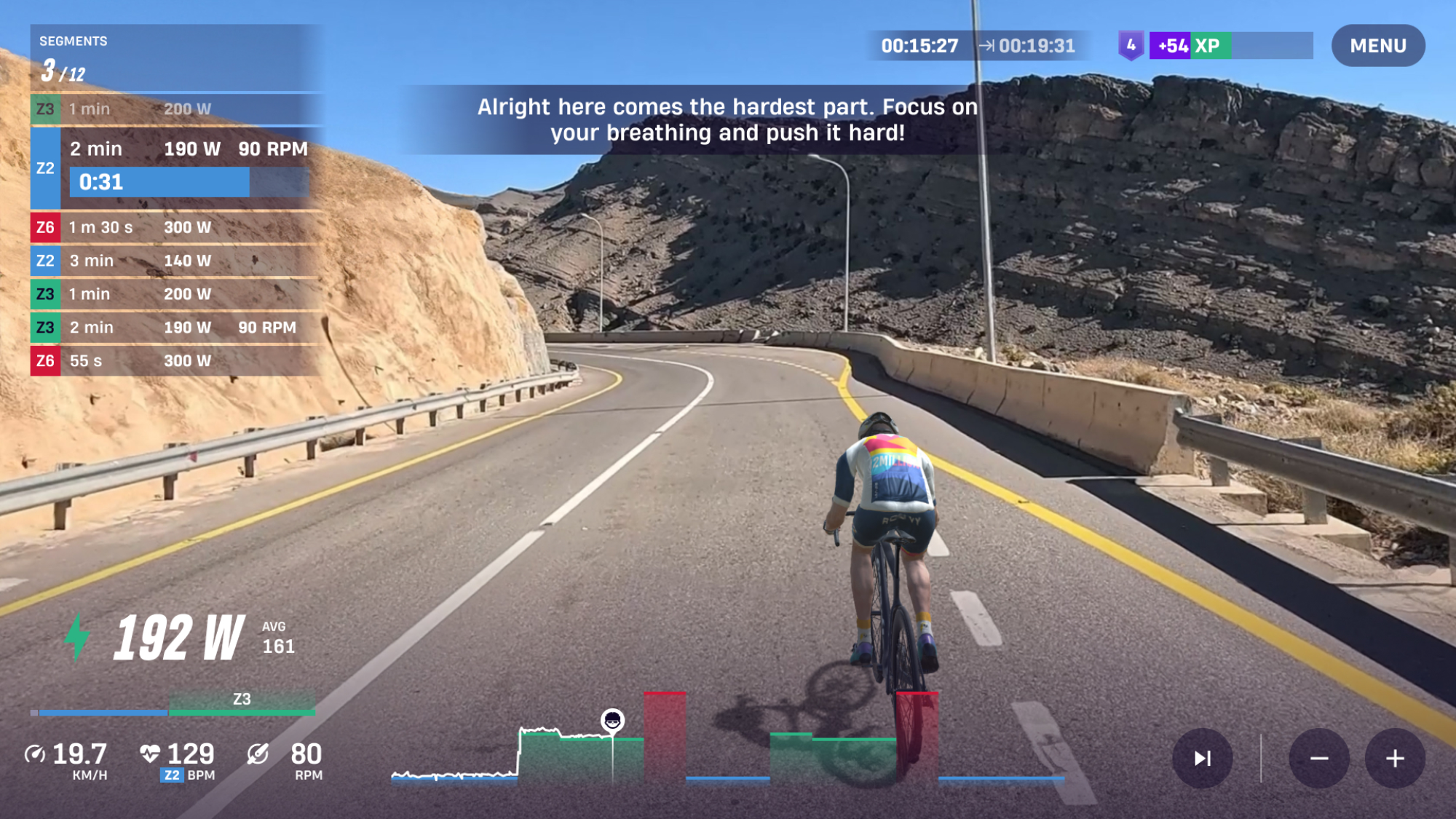Concussion protocol will see affected riders withdrawn from racing for at least a week
The new protocols have been in development since 2019.


The UCI has introduced a sports-related concussion (SRC) protocol that will see affected riders withdrawn from competition for at least a week.
Following a number of serious crashes and injuries in the 2020 season, including Romain Bardet’s withdrawal from the Tour de France with concussion, there was growing pressure on cycling’s governing body to act.
And they have now produced a set of guidelines that they say have been in the works since 2019. They will apply to all eight disciplines.
Accepting that road and mountain-bike riders often aren’t attended to by a race or team doctor in the immediate aftermath of an accident, the protocol recommends that non-health professionals are trained for recognising the signs of suspected concussion.
That includes riders, mechanics, coaches and sports directors, although the wording makes clear that such training will not be mandatory.
Such people will be told to look out for obvious signs of concussion such as slurred speech and trouble with balance.
Get The Leadout Newsletter
The latest race content, interviews, features, reviews and expert buying guides, direct to your inbox!
Should such signs be detected initially, the race doctor will then have to confirm the concussion. If there are no signs that point towards SRC, the said rider will still be required to be monitored by the medical service.
After the race, all riders who suffered a fall to the head will have to go through a more thorough examination using the SCAT5 tool, an examination that would be repeated the day after.
In the event of a confirmed concussion case, riders will be advised to completely rest for 24-48 hours, and not be allowed to compete for at least a week after their symptoms have disappeared. For juniors, the time away from competition is a minimum two weeks.
The protocols, however, still leave open the possibility of a concussed rider being able to continue racing if they don’t show the obvious signs.
Research indicates that concussion accounts for between 1.3% and 9.1% of all injuries in cycling’s eight disciplines, with BMX and some track events being in more favourable settings to quickly and accurately diagnose concussion.
>>> Concussion and cycling: the life-saving facts
UCI medical director professor Xavier Bigard, who has overseen the protocols, said: “Cycling now has guidelines that set out the various phases involved in dealing with SRC: initial assessment, diagnosis, recovery, and return to competition.
“This protocol… will make it easier to trace individual SRC cases and better understand their place in cycling traumatology.”

Thank you for reading 20 articles this month* Join now for unlimited access
Enjoy your first month for just £1 / $1 / €1
*Read 5 free articles per month without a subscription

Join now for unlimited access
Try first month for just £1 / $1 / €1
A freelance sports journalist and podcaster, you'll mostly find Chris's byline attached to news scoops, profile interviews and long reads across a variety of different publications. He has been writing regularly for Cycling Weekly since 2013. In 2024 he released a seven-part podcast documentary, Ghost in the Machine, about motor doping in cycling.
Previously a ski, hiking and cycling guide in the Canadian Rockies and Spanish Pyrenees, he almost certainly holds the record for the most number of interviews conducted from snowy mountains. He lives in Valencia, Spain.
-
 Review: Cane Creek says it made the world’s first gravel fork — but what is a gravel fork, and how does it ride?
Review: Cane Creek says it made the world’s first gravel fork — but what is a gravel fork, and how does it ride?Cane Creek claims its new fork covers the gravel category better than the mini MTB forks from RockShox and Fox, but at this price, we expected more.
By Charlie Kohlmeier
-
 ROUVY's augmented reality Route Creator platform is now available to everyone
ROUVY's augmented reality Route Creator platform is now available to everyoneRoute Creator allows you to map out your home roads using a camera, and then ride them from your living room
By Joe Baker